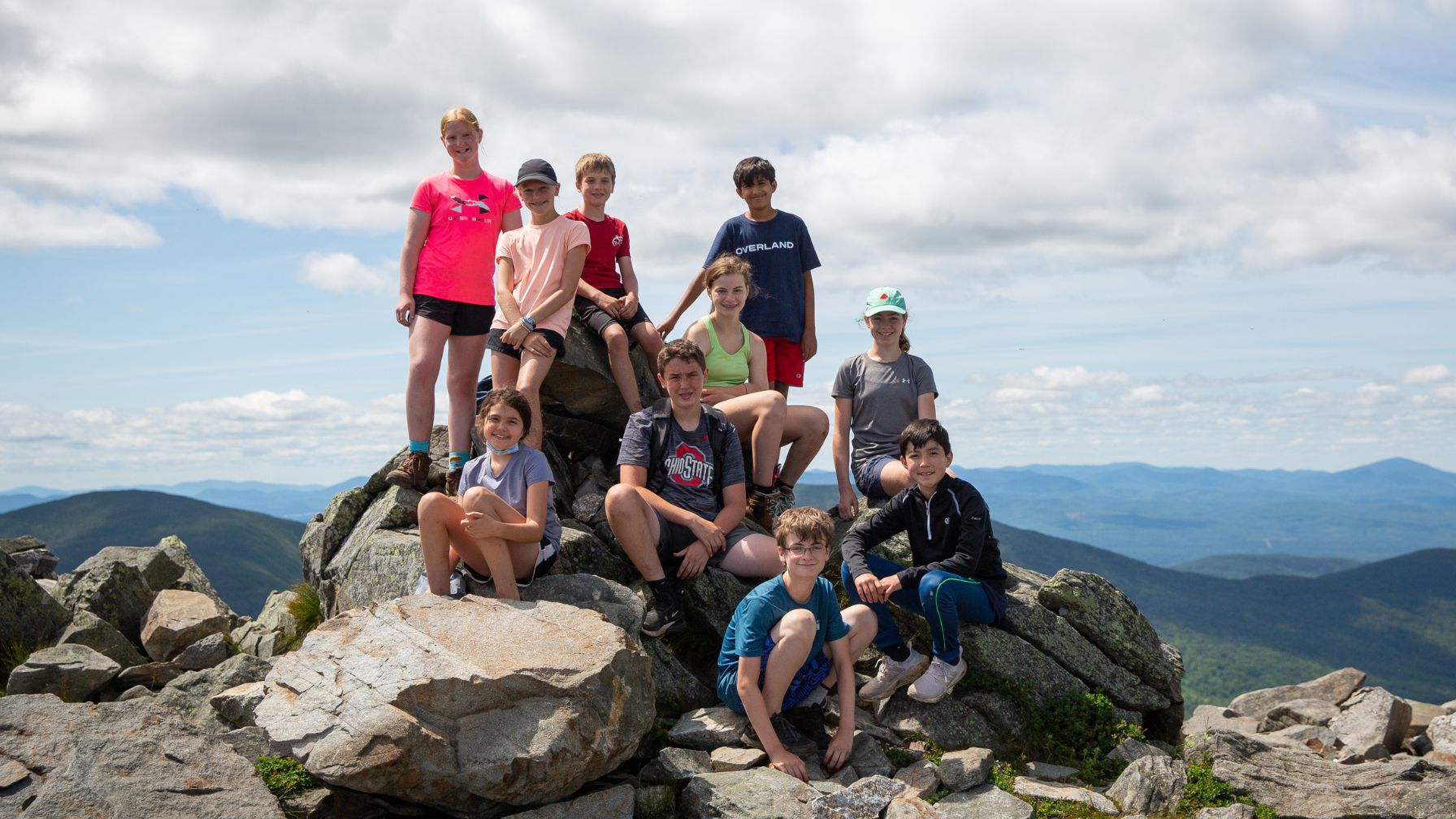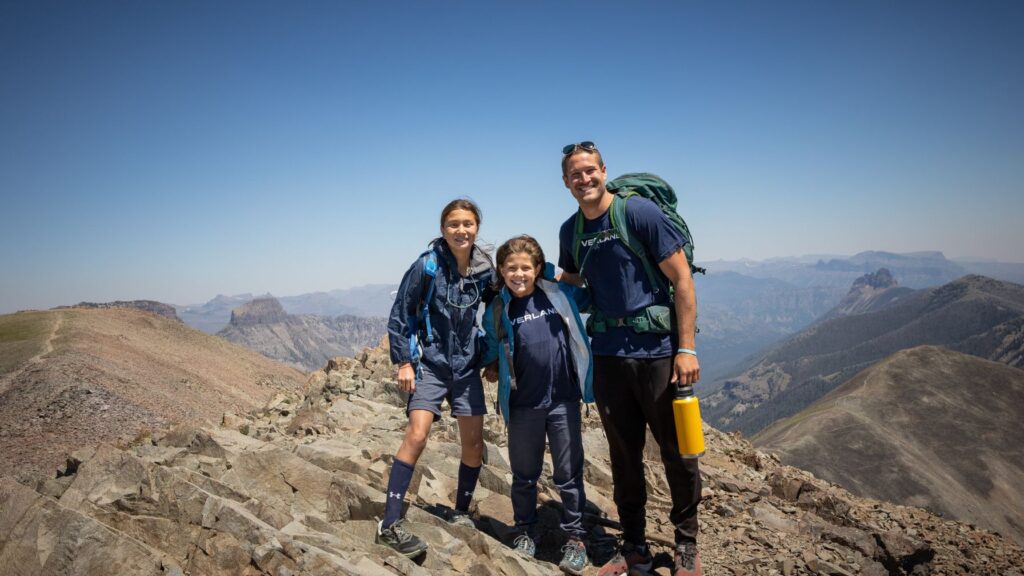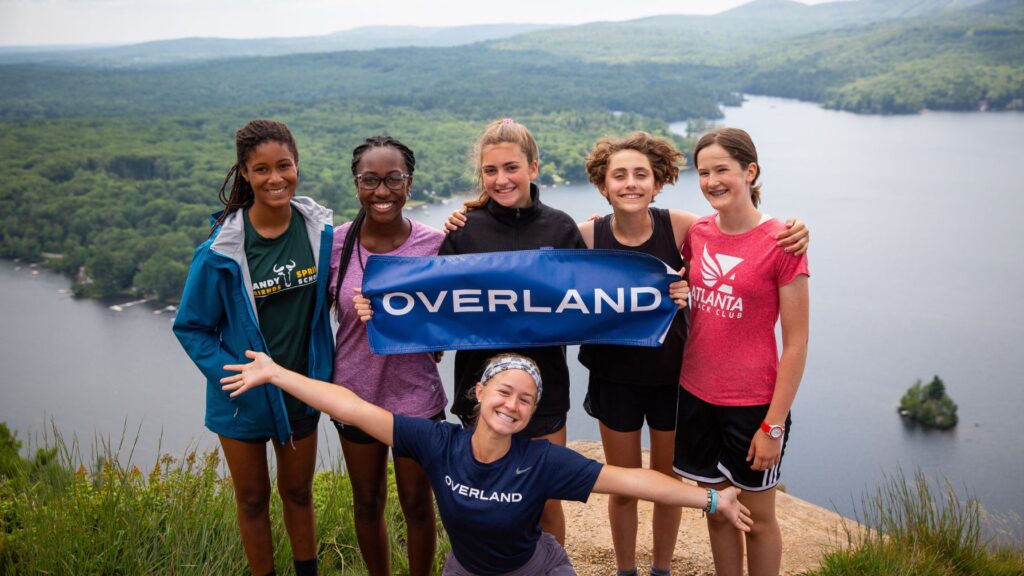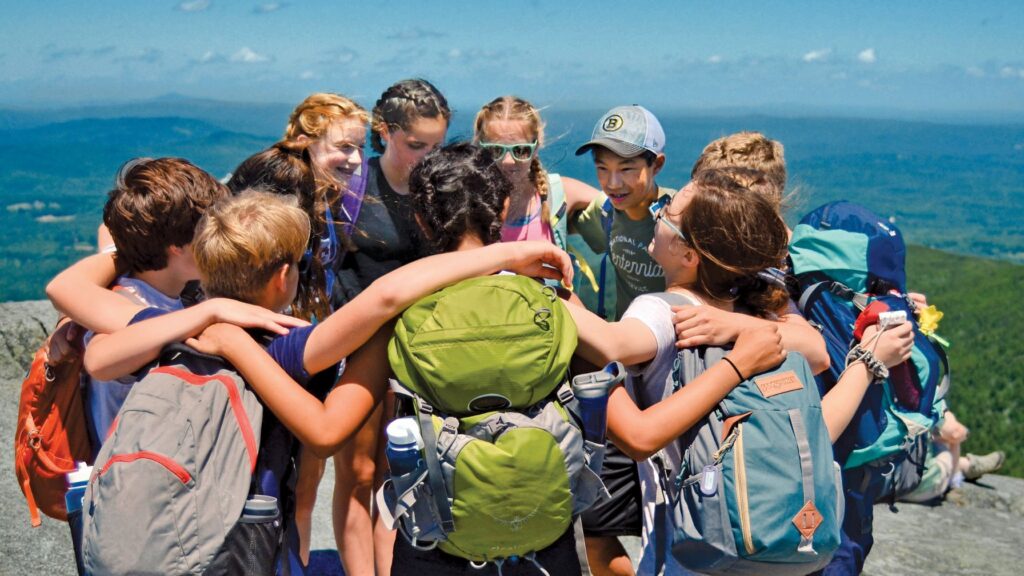Thinking about sending your child to summer camp this year?
If so, it’s important to explore your options. The best place to start is by looking at the different types of summer camps available:
| Camp Type | Description |
| 1. Adventure Camps | Focus on outdoor activities like hiking, climbing, and wilderness survival |
| 2. Service Trips | Combines community service with an exploration of the outdoors |
| 3. Learning Language Camps | A more immersive outdoor trip paired with travel and cultural activities abroad |
| 4. Traditional Overnight Camps | Your classic camping experience, with a mix of outdoor activities and group bonding |
| 5. Day Camps | A flexible options with outdoor activities during the day before returning home in the evening (great for young campers) |
| 6. Arts Camps | Creative camps that focus on art in all mediums, including visual arts, theater, music, and more |
| 7. Sports Camps | Skill-building camps that focus on athletic development for a single sport |
| 8. STEM Camps | Hands-on science, technology, engineering, and math activities to keep kids’ minds engaged over the summer |
| 9. Special Needs Camps | Inclusive programs for children with diverse needs |
| 10. Music Camps | Camps with a focus on musical performance and instruction |
If you want to learn more about the different types of summer camps out there, let us be your guide!
1. Adventure Camps
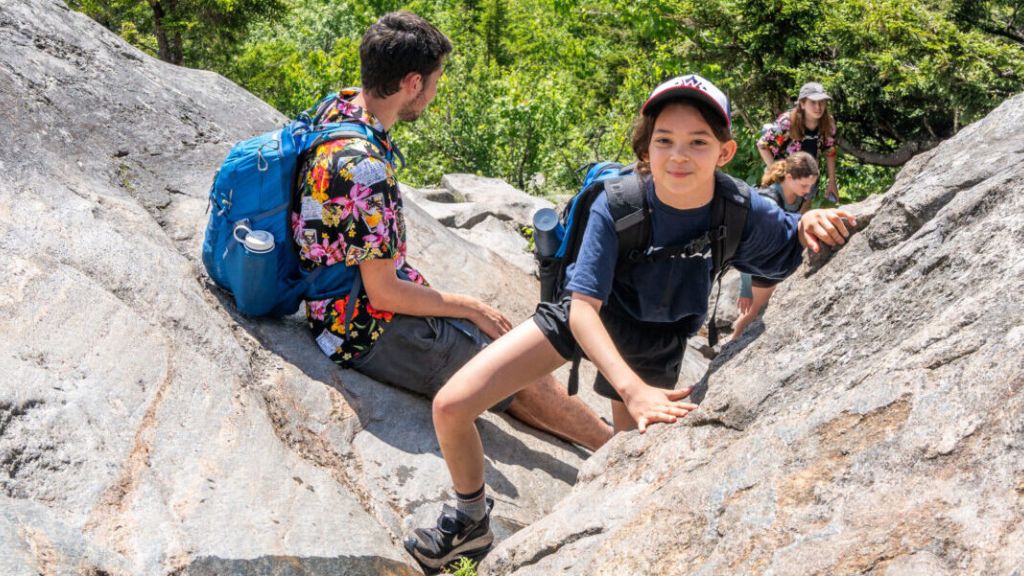
Adventure Camps are designed for kids who love the outdoors and are up for a challenge!.
From exploring the Berkshires in the northwest corner of Massachusetts to tackling the 4,000-foot peaks along the Appalachian Trail, or becoming immersed in the vibrant wildlife around Kilimanjaro, our immersive outdoor experiences here at Overland Summers push kids to their limits in the best way possible.
With small group sizes and trips designated for different age ranges, campers are given personalized attention, helping them build leadership, problem-solving skills, and self-confidence.
2. Service Trips

Service trips offer a way for young travelers to make a real difference while exploring beautiful destinations.
These trips typically involve volunteering for hands-on projects that contribute to the environment or social causes in local communities. Whether helping to restore trails, working on environmental conservation, or assisting with community development, these experiences foster empathy, teamwork, and a sense of accomplishment.
Looking for service trips for your child or teen? We offer two service and hiking trips here at Overland Summers, including:
- New England: Where campers help rebuild trails, harvest organic vegetables on a local farm, and help facilitate a reading and recreation program for young K-2nd grade students.
- Alaska: Campers spend two weeks exploring and servicing trails outside of Anchorage while backpacking the Chugach and sea kayaking the Passage Canal.
3. Learning Language Camps
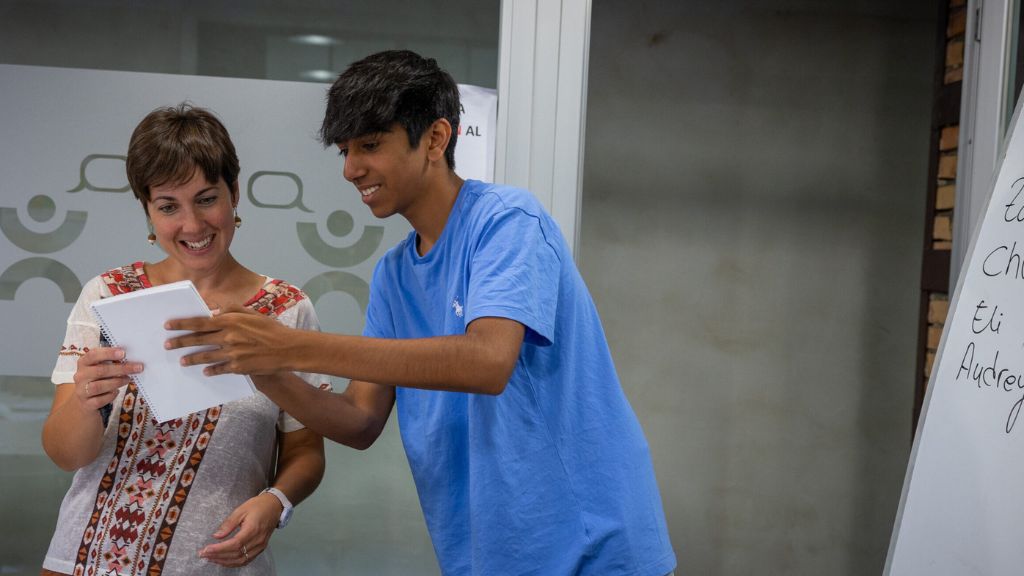
Language Camps offer a way for campers to learn new languages while exploring other cultures. They often take place in foreign countries far from home, offering campers the ability to practice a new language in real-life situations beyond the classroom!
These excursions often include hikes, cooking lessons, and cultural explorations.
Interested in exploring options for your child to go on a language learning trip? Learn more about our language and hiking trips here at Overland Summers that take place in France and Spain.
4. Traditional Overnight Camps
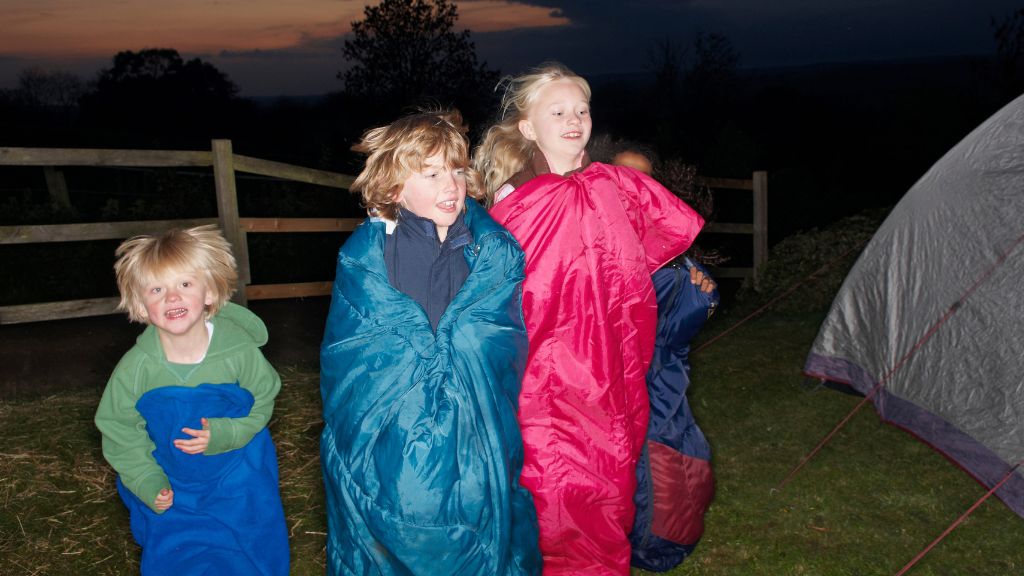
Out of all the different types of summer camps, you’re probably most familiar with traditional overnight camps.
Here, kids will get a mix of arts, sports, and team-building activities during the day, before heading to their cabins or tents at night, depending on the location.
5. Day Camps
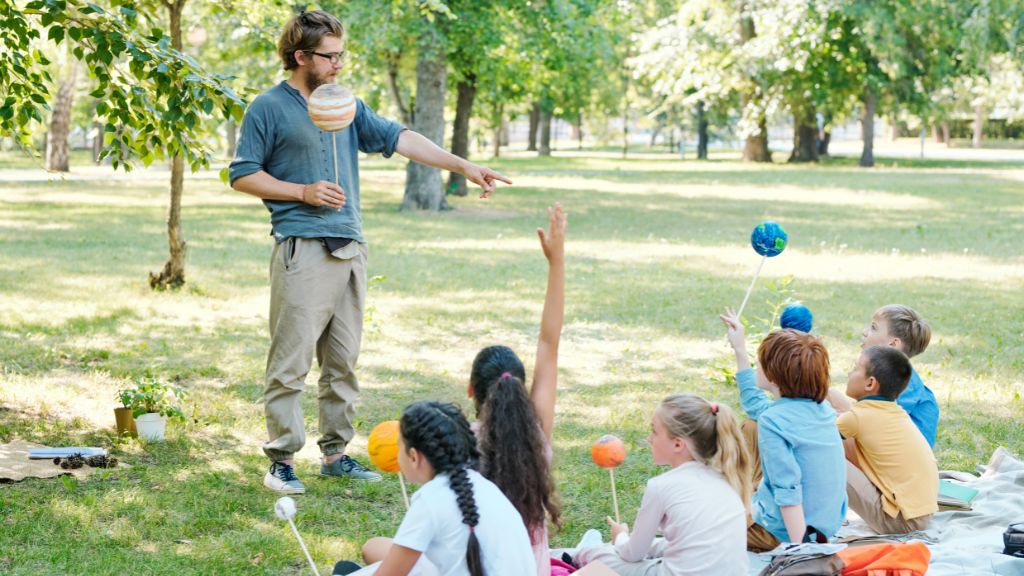
Day camps give kids a full day of fun—think outdoor games, art projects, and group activities—before heading home in the evening. They offer a great mix of structure and flexibility, especially for families looking for local options that don’t involve overnight stays.
It’s a classic summer experience that keeps kids active, social, and engaged, all while sleeping in their own beds at night.
6. Arts Camps

If your child loves painting, singing, dancing, or photography, arts camps are an excellent choice!
Campers get to participate in hands-on projects, guided by experienced instructors, where they can explore various mediums and techniques, depending on what they enjoy.
Some of the activities you might find include:
- Collaborative murals
- Improv theater
- Digital photography
With small groups and structured schedules, these camps help kids find new ways to express themselves alongside their peers!
7. Sports Camps
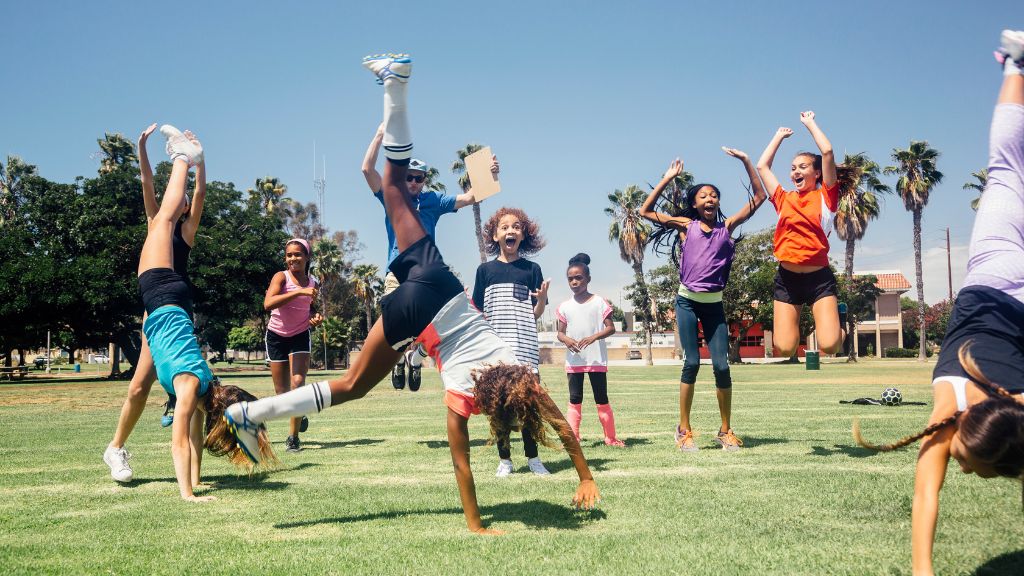
Sports Camps are designed for young athletes who want to stay active during the summer months.
With different types of camps focusing on soccer, tennis, basketball, and more, kids of all ages and skill levels can hone their skills with specialized instruction, drills, and practice sessions.
Plus, research shows that enrolling our children in sports helps them develop better mental health and pro-social skills.
8. STEM Camps

STEM camps are the perfect solution for parents looking to keep their kids learning throughout the summer.
Research shows that kids can lose up to two months of learning over the summer. However, STEM camps offer an exciting way to combat this by building new skills in science, technology, engineering, and math.
At these camps, campers get to explore hands-on activities like coding, building robots, designing rockets, and more. Not only do these activities foster problem-solving skills and build confidence, especially in subjects that kids might find intimidating during the school year, but they can also spark interest in potential future careers!
9. Special Needs Camps
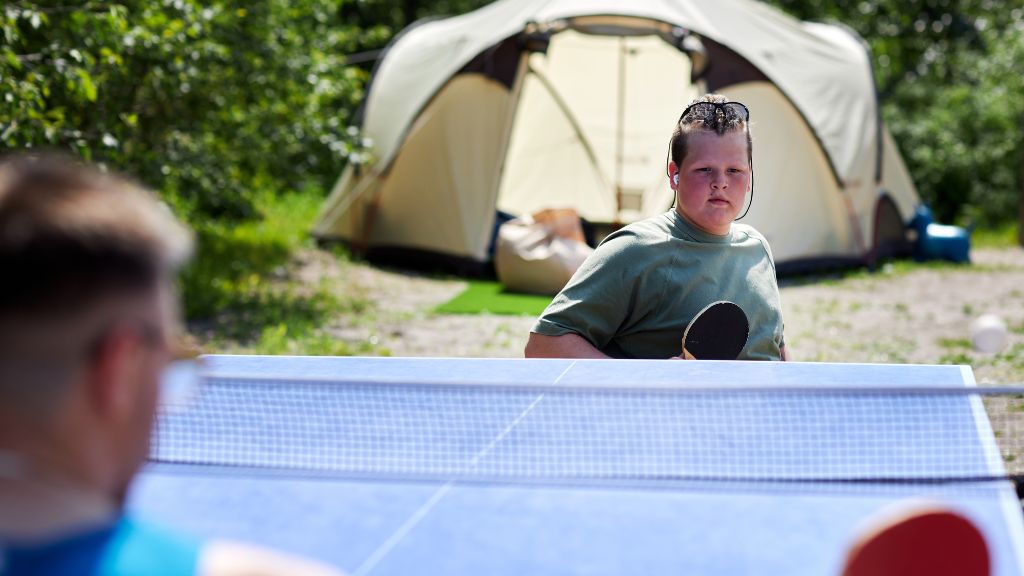
Special Needs Camps offer a unique experience for children with diverse abilities.
These camps help create an inclusive environment with small group sizes and individualized attention. You’ll find a wide range of activities like hiking, arts, and social skill-building exercises, led by specialized staff who are trained to work with kids with learning differences.
10. Music Camps
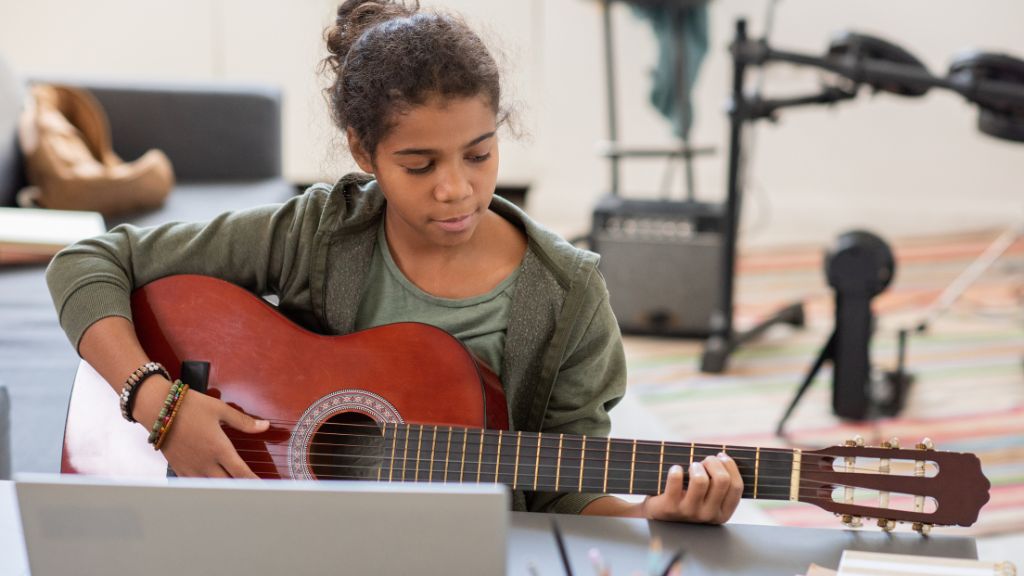
Music Camps are perfect for young musicians who want to improve their playing skills over the summer!
Whether your kids want the opportunity to jam with other musicians in a modern rock band setting or hone their classical skills with ensemble performances, these camps offer an in-depth exploration of all things music-related!
You’ll often find a mix of group lessons, individual practice time, and performances, so campers can find time to refine their technique while exploring new genres of music.
More often than not, music theory, songwriting, and improvisation are also part of the curriculum.
How To Choose A Summer Adventure For Your Child
Get first-hand insights into what you should look for when choosing the next summer travel adventure for your child.
How to Choose the Right Summer Camp for Your Child
So, as you can see, there are so many different types of summer camps to choose from. If you’re feeling overwhelmed by the choices, fear not! We’re here to make your decision easier with a few key factors to consider:
- Interests: Does your child love sports, adventure, or creative activities like music and arts? The best thing you can do is find different types of camps that align with their passions.
- Age: Some camps are specifically designed for certain age groups, so make sure to select a camp that fits your child’s age range.
- Special Needs: If your child has specific learning needs or challenges, look for camps that cater to them.
- Affiliation: Are you looking for a camp with a particular focus, such as one with a religious affiliation or one that’s tethered to a local university? Before you enroll your child, make sure to explore camps that align with your family’s values!
- Budget: Different types of summer camps range in cost. Be sure to find one that fits your budget!
- Distance: Consider how far away you’d like your child to be from home. Some summer camps offer children trips halfway across the world, while some bring them back home in the evening.
Quick Checklist for Parents/Teens
Here’s a quick checklist with questions to ask, so you can pick the perfect summer camp without a hitch:
- Does the camp match my child’s interests (sports, arts, adventure, etc.)?
- Is the camp appropriate for my child’s age or maturity level?
- Does the camp provide specialized support if needed (i.e., special needs)?
- Does the camp align with my family’s values or preferences (affiliation, inclusivity)?
- Does the camp fit within our budget?
- Is the camp too far from home, or is the location convenient?
If you want to explore a few exciting options for your child, reach out to us at Overland Summers or request a catalog with more information about our different types of summer camps!
FAQs About Summer Camps
At what age can kids start each type of camp?
- Adventure Camps: Great for kids aged 9 and up, as they involve more physically demanding activities.
Service Trips: These trips are perfect for teens ages 13-17 who want to give back while exploring new places.
Learning Language Camps: We also recommend these for teens ages 13-17, depending on language proficiency.
Traditional Overnight Camps: Generally start at age 8, though some camps offer programs for younger kids in day camp formats. - Day Camps: These are available for kids as young as 4 or 5 years old, or any children who aren’t quite ready for overnight stays.
Arts Camps: Suitable for kids of all ages, though most start from around 7-8 years old and offer different age groups. - Sports Camps: Depending on the sport, most sports camps start around age 7 or 8.
- STEM Camps: These camps are typically for kids aged 9 and up, though some offer early programs for younger children who may not yet have an interest in science and technology.
- Special Needs Camps: These camps are designed for kids with specific needs and start as young as 5 and up, depending on the camp’s focus.
- Music Camps: Great for children aged 8 and older. Many programs operate on different levels based on experience and skill.
What’s the difference between day and overnight camps?
With day camps, campers attend during the day and return home in the evening. We recommend them for younger children or children who have never camped before.
With overnight camps, however, campers stay at camp for the duration of the program, typically for a more immersive experience.
Are there camps for children with allergies/disabilities?
Absolutely! Many camps offer specialized programs for children with allergies or disabilities, which have trained staff and support systems to ensure every child has a safe, inclusive, and enriching experience.
What is the cost range for each type?
- Day Camps: Typically range from $100 to $500 per week, depending on the location and activities offered.
- Overnight Camps: Range from $500 to $3,000 or more for a one- to two-week stay, depending on the camp’s facilities, activities, and focus.
Specialized Camps (e.g., STEM, Arts, Sports): These can range from $300 to $2,000 per session, depending on the camp’s level of expertise and the programs offered.
Service Trips: Often more expensive, these can range from $1,000 to $7,000, as they combine travel, outdoor adventure, and volunteer work. - Language Trips: These are often the most expensive, as they include travel to foreign destinations. You can expect to pay up to $10,000 in some cases, depending on the length of the trip and the activities offered.
What questions should I ask a camp director?
- Before you commit to a camp, it’s important to ask the right questions, such as:
- Can you provide testimonials or references from past campers or parents?
- What is the camper-to-staff ratio?
- How does the camp handle safety, especially for outdoor activities?
- What is the camp’s policy on medical care and emergencies?
- What is the camp’s approach to inclusivity for children with special needs?
- How are the camp’s activities structured throughout the day?
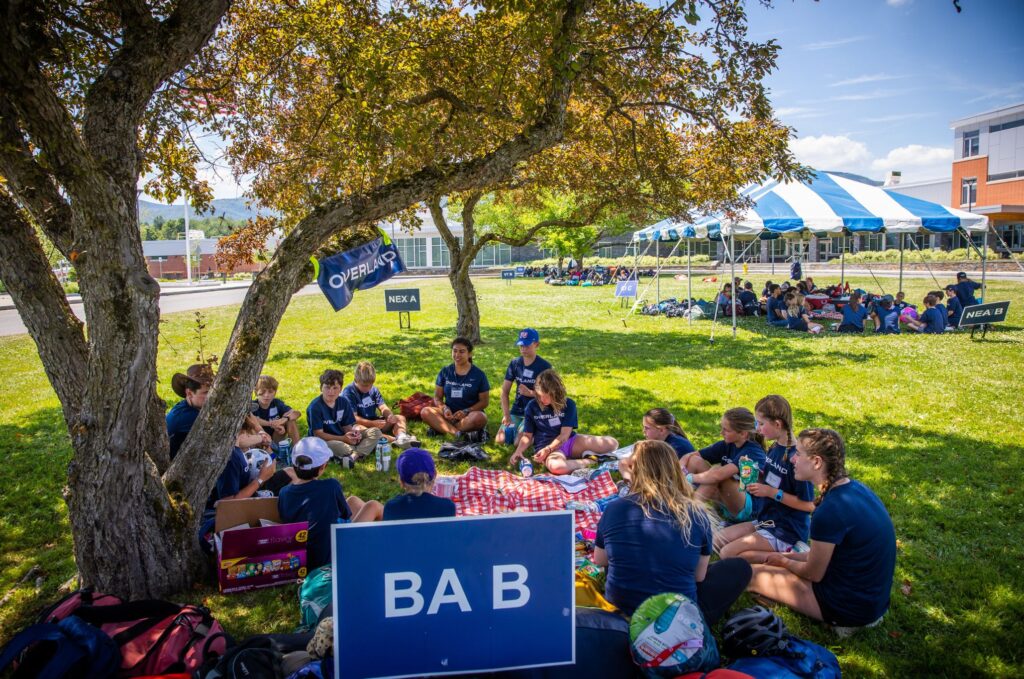
The Right Camp Experience Make A Big Difference
Summer camp can have a profound impact on children. The right one can offer better personal growth, confidence, and a love for adventure that lasts a lifetime.
With so many different types of summer camps available, there’s a perfect fit for every child’s interests and needs as long as you’re willing to put in the research.
Want to learn more about our once-in-a-lifetime camping experiences here at Overland Summers? Get in touch with us today!
